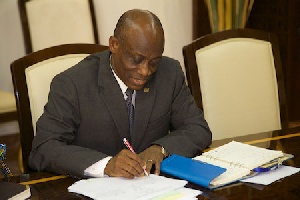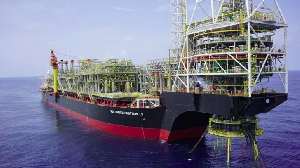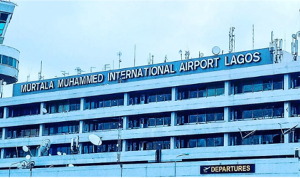In spite of an escalating public debt profile, Ghana has been given the green light by the International Monetary Fund (IMF) to contract more loans to finance development projects.
The Business Finder can confirm that government’s request to the Fund for an increase in the ceiling on non-concessional borrowing has been granted.
“To reduce the pressure on the domestic securities market, the IMF Board has approved an increase in the debt limit for non-concessional external borrowing for Ghana to allow for a new Eurobond, as well as to finance critical development projects,” an IMF spokesperson told this paper through email.
He, however, indicated that for countries at a high risk of debt distress like Ghana, reducing the debt burden and associated vulnerabilities remained a priority for the Fund.
Ghana’s total debt stock has increased by GH¢5 billion more, between May and June 2015 and according to figures from the Bank of Ghana (BoG), the country’s total debt stock now stands at GH¢94.5 billion, representing 70.9 percent of Gross Domestic Product (GDP).
Ghana’s total public debt in the first half of the year has increased consistently by about GH¢15.1 billion, growing from GH¢79.4 billion in January, to GH¢94.5 billion in June.
Meanwhile, government has sought to assure that the rate at which it is borrowing, will not harm the country, and that, it is engaging in what it described as “smart borrowing.”
It will be recalled that the IMF report after reviewing Ghana’s performance under the Extended Credit Facility programme said, Ghana’s total public debt now exceeds pre-HIPC levels.
Again, the Fund is projecting that Ghana will end the year 2015 with a 75 percent debt-to-GDP ratio.
The source explained that Fund policies could accommodate some non-concessional borrowing if it was intended to finance critical and profitable projects for which concessional financing was not available, or if non-concessional borrowing was aimed at improving the country’s debt profile, “say by paying off expensive short-term debt and by lengthening debt maturities.”
“This was precisely the rationale for the IMF Board decision to increase the limit on non-concessional borrowing under the programme this year,” he added.
The Fund reckons that although the government’s ambitious and front-loaded fiscal consolidation plans are on track, Ghana still faces exceptionally high gross financing needs.
Due to tighter conditions on the domestic securities market, the government’s financing mix for the remainder of 2015 is projected to be more externally oriented.
The Bretton Woods Institution notes that the most important check on a rising debt is the fiscal deficit, as it is the determining factor of debt accumulation.
“The authorities’ Extended Credit Facility (ECF)-supported programme is aiming at an ambitious, but achievable, frontloaded fiscal consolidation to bring public debt back to a sustainable path over the medium term,” the spokesperson stated.
To achieve this, the programme aims at specific fiscal targets which will be monitored regularly in the context of the forthcoming reviews of programme implementation.
Though they agree that government must mobilize resources to meet its development objectives, some economists who spoke to the Business Finder raised concerns over the escalating debt level, doubting government’s commitment to the successful implementation of its debt management strategy.
Business News of Friday, 18 September 2015
Source: The Finder













